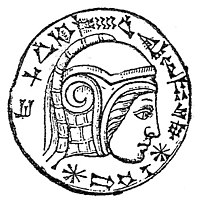"I become afraid of all my suffering,
for I know you will not hold me innocent.
I shall be condemned;
why then do I labor in vain?
If I wash myself with snow
and cleanse my hands with lye,
yet you will plunge me into a pit,
and my own clothes will abhor me.
For he is not a man, as I am, that I might answer him,
that we should come to trial together."
Job here gives utterance to a concept also found in Isaiah 64:6, comparing our nature to rotten and filthy clothes that must be put off. He goes further, describing the efforts of the unregenerate man to cleanse himself, seeking the purity of snow (contrast Isaiah 1:18), and the cleanliness of harsh lye soap (against Psalm 51:7). This is man under the covenant of works, striving by works to achieve the eternal life first offered to Adam for his perfect obedience (Genesis 1:28-30, 2:17). In Adam's transgression we all became sinners (Romans 5:12), and under judgment for breaking God's commandments (James 2:10 and Galatians 3:10). And Job warns us that the shifty arguments that we offer in defense do not sway our divine Judge (verse 32). That covenant is broken and there is only judgment, not hope, therein.
So, where can we be made clean? Only by being washed in the shed blood of Jesus Christ (Revelation 1:5).
Sedulius Paschal Work, Book 2
9 hours ago






